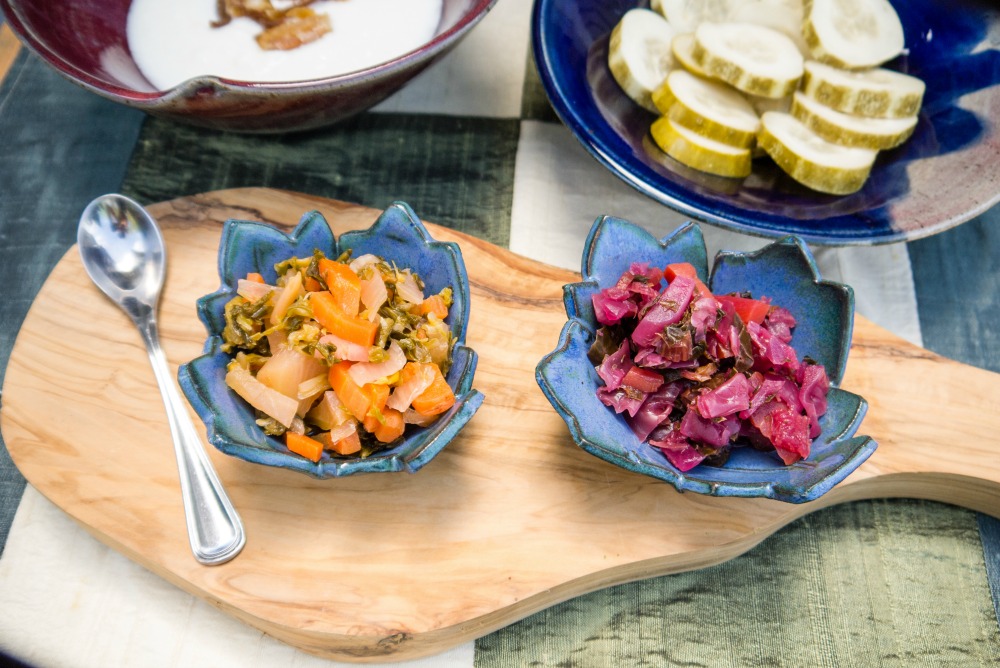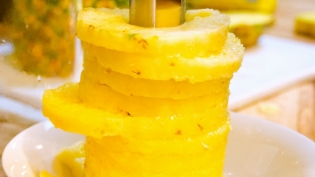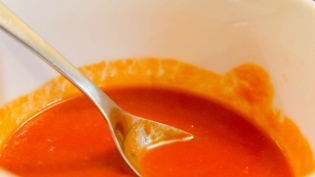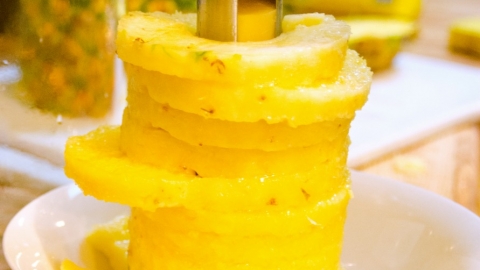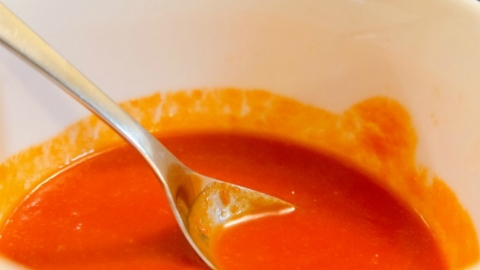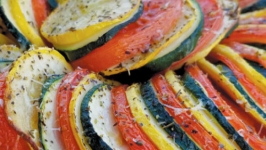Discover The Benefits of Fermented Foods
The home gardening experts at Tyrant Farms make a compelling case for including fermented foods in your regular diet.
Our kitchen counter is covered with an array of fresh vegetables my wife and I just harvested from our garden: cabbage, carrots, kohlrabi, Brussels sprouts, turnips, radishes and more. There’s far more fresh produce than we could possible eat over the course of several days. How should we store this precious food so that it doesn’t go to waste, we wonder?
This is not just a modern problem. It’s a problem human beings have encountered for as long as good fortune brought forth an abundant harvest.
Sure, we could freeze or can our veggies using technologies that have been in common use for about 100 and 200 years, respectively. However, our preferred method of long-term food storage has increasingly turned to a “technology” that humans began to master at least 10,000 years ago: partnering with microbes in a process known as fermentation.
Not just any microbes will do, mind you. You can’t leave a head of cabbage on the counter for a month and hope for the best, or you’ll end up with a stinky puddle of brown goo.
In this case, we’ll be intentionally cultivating species of lactic acid bacteria (LAB) in a high acid, high salt, low oxygen environment. Soon, these bacterial cultures begin happily digesting the fibrous vegetables, reproducing billions of times over the course of four to six weeks in our German fermentation crock. In a feat that’s as close to magic as we know of, rather than diminishing the nutrition of the veggies, the fermentation process actually amplifies their nutrient and phytochemical content, making them far more nutritious for us than they would have been eaten raw or even cooked.
The magic show doesn’t stop there, however. It only gets better.
Scientists refer to the gardens of microbial life in and on us as the “human microbiome.” For every one human cell in/on your body, there are about 1.3 microbial cells. Yes, there are more of them than there are of you, if you wish to be reductive about what “you” actually means. In the process of consuming fermented foods and beverages, we’re not just getting an immediate boost of nutrition. We’re also introducing trillions of beneficial microbial partners to the region of our microbiome known as the gut biota, which confers benefits to you similarly to the way adding microbially-dense compost or worm castings boosts the health and productivity of your vegetable garden.
The role that your gut flora has on your overall health is just beginning to be understood, but all indications are that it’s profoundly important to your health and wellbeing—at least your immune system certainly seems to think so. Even though your immune system is distributed throughout various regions of your body, about 70% of it is found in your gastrointestinal (GI) tract. The GI tract is also home to the highest density of microorganisms in your body: in a healthy human being, upwards of 100 trillion microbial cells and 1,000 different species of bacteria live there, each serving a range of interrelated functions. Fungi, viruses and other microbes also exist there; however, bacteria are by far the dominant species.
These critters are as helpful to us as we are to them. They can’t go out and find their own food, so perhaps they long ago cultivated human beings to do that work for them. Likewise, we don’t have the enzymes necessary to digest the food we find and eat, so our resident microbes do that work for us, breaking down proteins, carbohydrates and lipids into nutrients that bodies and brains can use.
Our microbes also operate like a personalized pharmacy. Some species outcompete or kill pathogenic species that could make us sick or worse. Some produce beneficial compounds such as anti-inflammatories, while others make neuroactive compounds (serotonin, norepinephrine, dopamine) that regulate your mood and brain function, once upstreamed to your brain via the vagus nerve.
What happens when these bacterial communities are thrown out of balance by poor diet, chemical exposures such as pesticides, antibiotics, or other factors? When the optimal ratio of pathogenic (bad guys) to beneficial (good guys) species is disturbed, the host suffers. That’s you. The result of long-term GI imbalance ranges from digestive complications like IBS, chronic fatigue syndrome, neurological conditions, obesity and even certain types of cancer. Fortunately, we can learn to be good stewards of our microbial gardens to prevent such outcomes, a process made easier when we’re also good stewards of our food gardens: our yards and farms.
Working fermented foods into your diet doesn’t have to be hard, expensive or complicated. My wife and I have our “regular” ferments that we consume weekly or more during certain seasons of the year. Those include homemade or store-bought organic yogurt eaten with breakfast a few times a week, or as a dessert during spring and summer berry season; homemade sauerkraut served as a side dish or condiment; homemade or home-brewed beverages such as milk kefir, kombucha, mead, beer, or even tepache (a Mexican pineapple-honey concoction we make with leftover skins from the pineapples we grow in the summer). With a little knowledge—The Art of Fermentation by Sandor Katz is a great resource—a world of delicious possibilities will open up to you, and your gut flora will reward you with better health in return.
The medical community is starting to get on board the microbiome revolution as well. Billions of dollars of research is being funded in countries around the world to map these species and understand what they do, in the process revolutionizing modern medical treatments and procedures. Recently, when discussing this topic with my sister-in-law, a nationally-recognized child and adolescent psychiatrist with a large private practice on the west coast, she mentioned that her team now begins with prescribing lifestyle changes for new patients, their primary focus being the introduction of fermented foods and beverages into their diets, while using pharmaceuticals only as a last resort. As a result, her practice is documenting mental health results superior to those seen through use of prescription medications and without the side effects. Perhaps the medical adage “eat an apple and call me in the morning” should be upgraded to “eat yogurt and sauerkraut daily and call me next week.”
The microbial starters we add to various concoctions to initiate fermentation are called “cultures.” We’re fascinated by how these invisible cultures have shaped human culture for thousands of years. Even if you don’t like sauerkraut, can you imagine going through a day without a meal that included wine, beer, coffee, yogurt, cheese, sourdough bread, chocolate, olives, tempeh, salami, pickles, or the thousands of other foods, sauces, condiments and beverages that are made possible through unique fermentation processes? For us, there is a profound joy in intimately connecting the links up and down the chain. We tend the microbial cultures in our soil to produce organic fruits and vegetables. We then tend microbial cultures in/on that produce to create nutritionally super-charged foods and beverages (often with the help of other geeky ferment-loving friends). Finally, we use those fermented foods and beverages to enhance our immediate human culture through unforgettable shared meals with people we love.
We don’t think of our relationship with these magical microbes in terms of a master-slave relationship. We are just as dependent on their existence as they are on ours. As long as human beings have roamed the earth, these resident microbes have been a part of us. We’ve cultivated each other, intentionally or not. Yet for the past century, we’ve accidentally declared war on these microbial family members with the indiscriminate use of antibiotics, pesticides, house cleaners, sterile processed foods, and other weapons of microbial mass destruction. It’s time for our newfound knowledge to bring that war to an end. This process begins with the recognition that human culture and the microbial cultures that sustain and improve our health are inextricably linked. Perhaps it’s time for a cultural revolution: one that begins in the soil and culminates on the plate.
Aaron and Susan von Frank are the husband and wife cofounders of GrowJourney, a USDA certified organic, heirloom Seeds of the Month Club based in Greenville, SC. Their edible, organic home landscape has been featured in LearnVest and Forbes. They've taught organic gardening and permaculture through the South Carolina Organic Growers School, Gardening For Good, and through their popular gardening blog, Tyrant Farms, named in honor of Susan (she can be a bit bossy). Aaron is a graduate of Furman University with a BA in Political Science and Susan is a graduate of College of Charleston with a BA in Biology.


